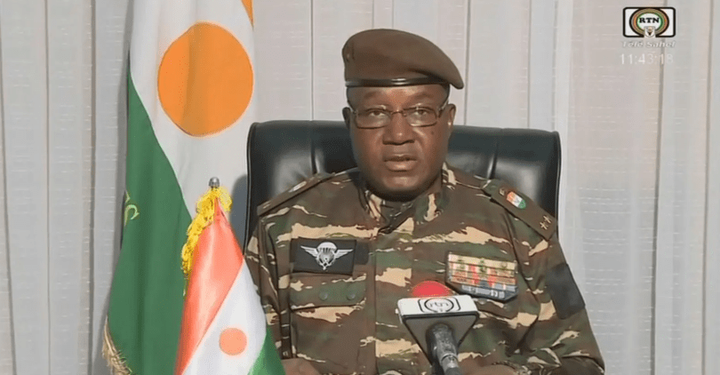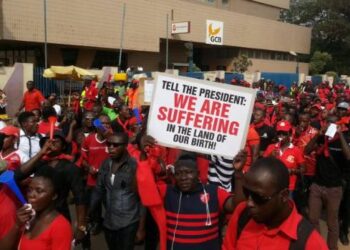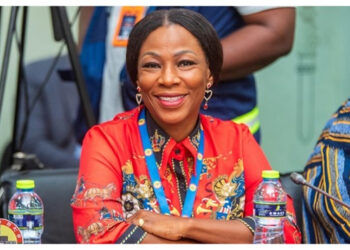Over the last three years, West Africa has experienced a series of coup d’états, with Mali, Guinea, and Burkina Faso becoming the unfortunate epicenter of this trend. As military governments continue to hold power in these countries, the region faces challenges rooted in regional instability, poor governance, accountability, and a history of successful past coups. However, amidst the darkness, some West African states show us that democratic progress is indeed possible.
The origins of this wave of coups in West Africa can be traced back to various factors. The prevalence of regional instability has created fertile ground for military uprisings. Moreover, the failure of elected leaders to provide effective governance and address pressing societal issues has left disillusionment and discontent among the population. This discontent, coupled with the memory of past successful coups, has emboldened the military to seize power, leading to a detrimental cycle.
The ECOWAS Response
The Economic Community of West African States (ECOWAS) has long been committed to promoting democracy and stability in the region. However, the coup in Niger serves as a blow to its efforts to consolidate democratic progress. Following coups in Mali, Guinea, Burkina Faso, and an attempted coup in Guinea-Bissau, ECOWAS leaders vowed to no longer tolerate such disruptions to democracy.
Despite ECOWAS’s resolve, efforts to restore constitutional order in the affected countries have faced significant challenges. The military leaders in Mali and Burkina Faso have shown minimal cooperation with regional mediators, hindering progress towards democratic transitions. The situation in Niger now poses yet another test for ECOWAS leaders’ ability to persuade soldiers to relinquish power and return the country to democratic rule.
Niger’s recent coup catapulted it into becoming a democratic outlier in West Africa’s Sahel region. Neighboring countries such as Mali, Burkina Faso, and Chad had already fallen under military control since 2020, leaving Niger as the latest victim of this worrying trend. The Sahel region, with its strategic location just south of the Sahara, now finds itself grappling with a governance crisis.
Experts react
However, in the wake of President Bola Ahmed Tinubu’s call for the establishment of a regional standby force to combat coup d’etat in the ECOWAS subregion, security experts have acknowledged the need for a coordinated response to potential threats. They also unanimously emphasised that the key to preventing forceful changes of government lies in promoting good governance and accountability.
A respected voice in the security community, Retired Colonel Hassan Stan-Labo, asserted that “nothing can mitigate coup d’etat like good governance.” He argued that when governments prioritise their social contract with the people by ensuring security and meeting welfare requirements, coup attempts are less likely to succeed.
Stan-Labo said a sense of ownership and trust in the government from the population acts as a potent deterrent against such actions.
Although he commended the proposal for an ECOWAS Standby Force as a peace stabiliser and development enabler, Stan-Labo reflects on the past effectiveness of the ECOMOG platform.
He questioned why ECOMOG, which was well-equipped and purposeful, could not continue its mission due to a lack of political will, funding, manpower, and logistics. Without addressing these challenges, he wondered if a new platform under the present ECOWAS can succeed in countering coup attempts.
He raised concerns about whether the financial burden and operational capacity required to handle internal crises in member states can be adequately met this time around.
In the wake of regional instability and coup d’états in West Africa, and a call by leaders of the Economic Community of West African States (ECOWAS) regarding the establishment of a standby force, retired Major Daniel Banjo expressed his support for an ECOWAS command, describing it as a welcome idea that has already been on the ground in the past through the ECOMOG initiative.
However, he voiced apprehensions about Nigeria taking full ownership of the force’s financial burden.
“We need the ECOWAS command; there is no doubt about that,” he said, “but I hope it is not going to spend all the money gathered there. It doesn’t have to be a Nigerian thing.”
Banjo further speculated on President’s future ambitions, suggesting that the establishment of a standby force might be linked to President’s aspirations to be President of ECOWAS. Referring to President’s political history, Banjo recounted, “Maybe because he is now President of Nigeria, which has been his plan since 1993. I know when he wanted to become deputy governor of Lagos State, I was in Dodan barracks then when he was coming to beg my Boss.” He expressed concerns about the United States’ influence in Africa and the lack of progress toward an African high command despite past discussions.
Expressing frustration over some politicians claiming to have fought for democracy, Banjo stated, “None of them fought more than some of us. Me personally, I suffered for democracy more than them.” He recalled his 34-month detention under General Abacha’s regime due to his alignment with NADECO (National Democratic Coalition). He also criticized the lifetime pension for political officeholders and called for cuts in senators’ and political appointees’ salaries.
On the other hand, Brigadier General Sani Usman, also retired, urged ECOWAS leaders to prioritise good governance over the establishment of a standby force.
He stressed that the root cause of many forceful changes of government in the region is bad governance.
“There is no better reserve than good governance,” Gen. Usman emphasised, highlighting that stability, peace, and security stem from effective governance. He urged leaders to address governance issues within their countries to achieve lasting stability and security.
On his part, the secretary general of the International Institute of Professional Security (IIPS), Dr. Abdullahi Mohammed Jabi, applauded the move as a significant step towards curbing international crime in the subregion.
Jabi expressed his approval of the initiative, emphasising its potential to tackle pressing security challenges, particularly terrorism, and kidnapping.
He stated, “We need the ECOWAS standby force. It is a welcome development, each member state will contribute its force to ensure these issues of terrorism and kidnapping come to an end because they are international crimes.”
Drawing parallels to the ECOMOG (Economic Community of West African States Monitoring Group) of the IBB era, Dr. Jabi highlighted that a similar structure will be put in place to ensure efficient operations, with member states jointly funding the force.
The security expert praised the idea of a standby force that would respond collectively to international threats, rather than relying solely on the capabilities of one country.
“It is a very healthy development,” he affirmed, stating the importance of regional cooperation in addressing security challenges.
On the issue of funding and resource allocation for the standby force, Jabi expressed confidence in the collaborative approach among ECOWAS member states.
He underscored the importance of each country contributing its fair share to ensure the force’s effectiveness in combating transnational crimes.
When approached for comments, the director of Defence Information, Brigadier General Tukur Gusau, declined to provide a statement on the matter. Instead, he directed inquiries to the ECOWAS secretariat for further information.










Discussion about this post